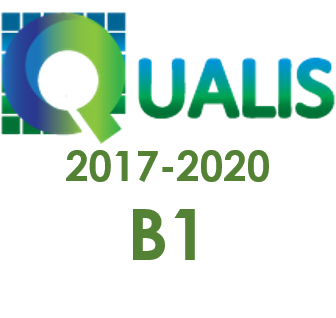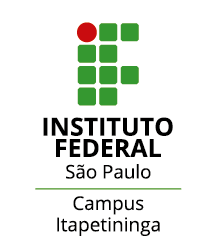Tomando decisões responsáveis sobre a vacina COVID-19
Conhecimentos e posições de futuros professores
Palavras-chave:
COVID-19. Questões sociocientíficas. Vacinas. Formação inicial de professores. Educação inicial.Resumo
A COVID-19 está sendo o cenário perfeito para difundir tanto informações errôneas quanto deliberadamente falsas sobre as vacinas. Nesse contexto, de urgência sanitária e de crise global, se desenvolveu um estudo de caso com futuros/as docentes que tem como finalidade investigar suas posições e conhecimentos que possuem para tomar decisões sobre as vacinas em relação à COVID-19. O objeto de análise deste artigo faz parte de um projeto de ação sociocientífica e implicando colaboração entre dois grupos de pesquisa interessados em avançar nesta linha de pesquisa.
Downloads
Referências
ALSOP, JOHN LAWRENCE, & BENCZE, STEVE. Activist Science and Technology Education. Springer. Netherlands, 2020.
CABELLO-GARRIDO, A.; CRUZ-LORITE, I.M.; CEBRIÁN-ROBLES, D.; GONZÁLEZ-GARCÍA, F.J.; ESPAÑA-RAMOS, E. Cartografía de controversias como herramienta para el análisis sobre Cuestiones Socialmente Vivas: aplicación a la crisis sanitaria global derivada de la COVID-19. 2021. Boletín ENCIC. (en prensa).
COUSO, D. Y PUIG, B. Educación científica en pandemia. 2021.Alambique Didáctica de las Ciencias Experimentales, (en prensa).
CEBRIÁN-ROBLES, D. Identificación de noticias falsas sobre ciencia y tecnología por estudiantes del grado de Primaria. Píxel-Bit. 2019. Revista de Medios y Educación (55), 23– 36. https://doi.org/10.12795/pixelbit.2019.i55.02
DEY, I. Qualitative data analysis. A user-friendly guide for social scientific.2005. London: Taylor & Francis e-Library.
DILLON, J., AVRAAMIDOU, L. 2021. Towards a viable response to COVID-19 from the science education community. 2020. Journal for Activist Science and Technology Education, 11 (2), 1–6.. https://doi.org/10.33137/jaste.v11i2.34531
ELAM, M., SOLLI, A., & MÄKITALO, Å. Socioscientific issues via controversy mapping: bringing actor-network theory into the science classroom with digital technology. Discourse: Studies in the Cultural Politics of Education, 2019. 40 (1), 61–77.
ERDURAN, SIBEL. Science Education in the Era of a Pandemic. How can History Philosophy and Sociology of Science Contribute to Education for Understanding and Solving the Covid-19 Crisis? Science & Education 29, pp. 233-235, 2021.
EVAGOROU, MARIA. Introduction: Socio-scientific Issues as Promoting Responsible Citizenship and the Relevance of Science. In M. Evagorou, J. A. Nielsen, y J. Dillon, (Eds.). Science Teacher Education for Responsible Citizenship, (pp 1-11), 2020. Springer: Netherlands.
GONZÁLEZ-ROMO, F., y PICAZO, J. J. El desarrollo de nuevas vacunas.2015. Enfermedades Infecciosas y Microbiologia Clínica, 33(8), 557–568. https://doi.org/10.1016/j.eimc.2015.06.013
HODSON, Derek. Going Beyond STS Education: Building a Curriculum for Sociopolitical Activism. 2020. Canadian Journal of Science, Mathematics and Technology Education. https://doi.org/10.1007/s42330-020-00114-6,
JIMÉNEZ ALEIXANDRE M. P. PUIG, B.; BRAVO TORIJA, B.; CRUJEIRAS, B. The role of discursive contexts in Argumentation. NARST 2014 Conference, https://narst.org/conferences/2014-annual-conference
LATOUR, B. La cartographie des controverses. 2007.Technology Review, 82–83.
LÓPEZ-GOÑI, Ignacio. Preparados para la próxima pandemia. Reflexiones desde la ciencia. Destino: Barcelona, 2020.
McCOMAS W. F. Nature of Science in Science Instruction: Rationales and Strategies. Geneva, Switzerland: Springer International Publishing, 2020.
PUIG, B.; AGEITOS, N. Critical Thinking to Decide what to Believe and what to Do Regarding Vaccination in Schools. A Case Study with Primary Pre-service Teachers. 2021. In B. Puig & M. P. Jiménez-Aleixandre (Eds.). Critical thinking in Biology and Environmental Education. Facing challenges in a post-truth world. Springer, en prensa.
PUIG, B.; BLANCO-ANAYA, P.; PÉREZ-MACEIRA, J. J. “Fake news or Real Science? Critical thinking to assess information on COVID-19. 2021. Frontiers in Education-STEM Education. doi: 10.3389/feduc.2021.646909
SMITH, N. & GRAHAM, T. Mapping the anti-vaccination movement on Facebook. Information. 2019. Communication & Society, 22, 1310-1327.
SOLBES, J. Socio-scientific Issues and Critical Thinking: A Proposal to Question the Pseudosciences. 2019 Tecné, Episteme y Didaxis: TED (46), 81-99.
ZOLLER, U. Environmental education at the university: The problem solving decision making act within a critical system thinking framework. 1990. Higher Education in Europe, 15 (4), 5–14.
Downloads
Publicado
Como Citar
Edição
Seção
Licença
Copyright (c) 2021 Revista Internacional de Pesquisa em Didática das Ciências e Matemática

Este trabalho está licenciado sob uma licença Creative Commons Attribution-NonCommercial-ShareAlike 4.0 International License.




